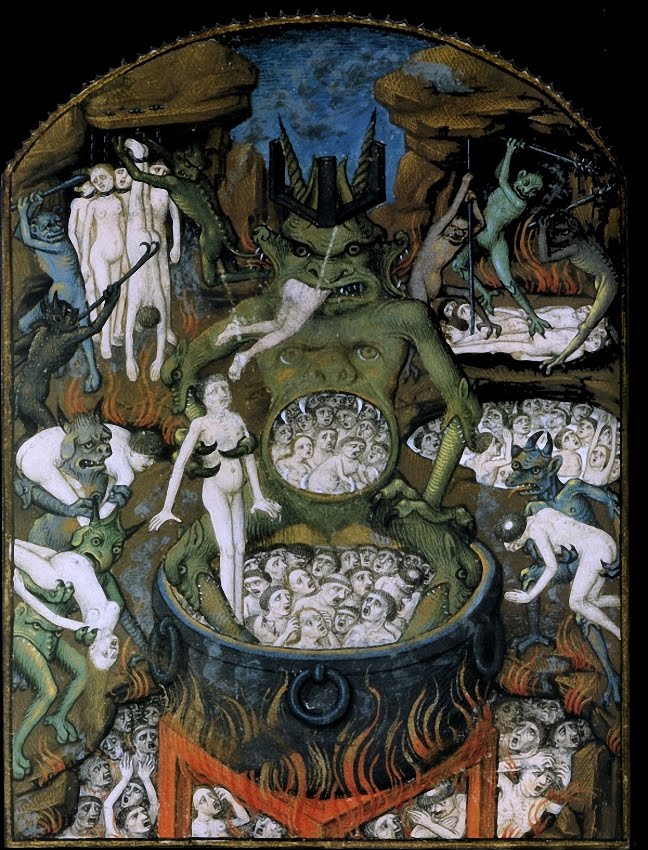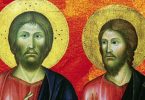1483-11-10 to 1546-02-18
Martin Luther was one of the most notable theologians in Christian history. He was responsible for initiating the ‘Protestant Reformation’. To some sixteenth century Christians, he was hailed as a pioneering defender of truth and religious freedoms. To others, at the time, he was considered to be a ‘heretical’ leader of a religious revolt. Irrespective of your stance, he influenced the shape of Christianity as we see it today. Both Catholics and Protestants will claim that he was correct about many things and that he changed the course of Western history.
Martin was born at Eisleben (about 120 miles southwest of Berlin) to Margaret and Hans Luder. He was raised in Mansfeld, where his father worked at the local copper mines. Martin was sent to Latin school and then, at the age of thirteen, to the University of Erfurt to study law. Martin was so capable at public debates that he earned the nickname “The Philosopher.”
In 1505, at the age of twenty-one Martin Luther made his way through a severe thunderstorm whilst traveling to Erfurt. A bolt of lightning struck the ground near him. It is claimed that he shouted:
“Help me, St. Anne! I will become a monk!”
He gave away his possessions and entered a monastery in 1505. He was ordained a priest in 1507. Luther was assigned to teach at the University of Wittenberg in 1508, where he would spend his entire career. He earned his doctorate in theology four years later.
Luther was successful as a monk. But some things were a little strange in the monkhood. He plunged into prayer, fasting, and ascetic practices which included: going without sleep, enduring cold without a blanket, and flagellating himself.
He appears to have been terrified of the wrath of God: “When it is touched by this passing inundation of the eternal, the soul feels and drinks nothing but eternal punishment.” The lesson of the time appears to be that bad people will suffer torment in hell. They have been given a fear of hell just as we today have been given an irrational ‘fear of disease’ by our ‘controllers’ and a fear of ‘failure’ by our educators. The populous of today can be ‘controlled’ by ‘germophobia’ and the obsession with ‘success’. The populous of the time could be controlled by the fear of torment after death. This was not fair nor reasonable on behalf of the then Catholic Church.
In 1510 he visited Rome and was appalled by the behavior of Church officials and their habit of ‘selling’ indulgences. It was effectively: “Give us money and you won’t go to hell.” Here is a Medieval painting of ‘hell’ which would be enough to give nightmares to a citizen.

To the Catholic, the indulgence is a monetary payment to the Church for the remission of the physical punishment in hell after death for sins. In Martin Luther’s time, indulgences were being sold by the Catholic Church to raise money for refurbishing the Basilica of St. Peter in Rome. This slogan below is attributed to the friar ‘Johann Tetzel’
“As soon as the coin in the coffer rings, the soul from purgatory springs.” .
Martin Luther was disillusioned by the immorality and corruption he witnessed among the Catholic priests that he had observed in Rome. Martin Luther immersed himself in the study of Scripture, particularly the letters written by the Apostle Paul. He started to believe that one was “saved by grace through faith” alone’. Ephesians words it this way:
For it is by grace you have been saved through faith, and this not from yourselves; it is the gift of God,
Ephesians 2:8 as in Berean Study Bible
Luther was teaching as a professor of biblical theology at the University of Wittenburg. He expressed enthusiasm for the concept about Christ’s role as the only mediator between God and man. The suggestion that it was by ‘grace’ and not through works, are men justified and forgiven of sin.
My interpretation of the teachings of Jesus is that a person is judge by the quality of their actions and how well they treat others.
So, Catholic Church behaviour had strayed from the intentions of Jesus, but what many consider to be a replacement by Luther was not correct either. Europe became split over ‘wrong’ v ‘wrong’.
###Heresy is a (usually religious) belief contrary to what is considered correct or acceptable at the time. A heretic is someone who has heretical beliefs. Heresy doesn’t refer to one particular idea or denomination – during the Reformation, Catholics were considered heretics in Protestant areas, and Protestants were persecuted for heresy in Catholic areas.
An indulgence is a remission of punishment for previously committed sins. It was a practice of the Roman Catholic Church, and involved its members paying for ticket-like documents that showed they had been forgiven of certain sins. The money from the sales of the indulgences was used to fund activities and projects (normally construction of churches, palaces, and monuments) for the Church. It should be noted that the Catholic Church no longer sells indulgences, and the practice is now an occurrence of the past.







